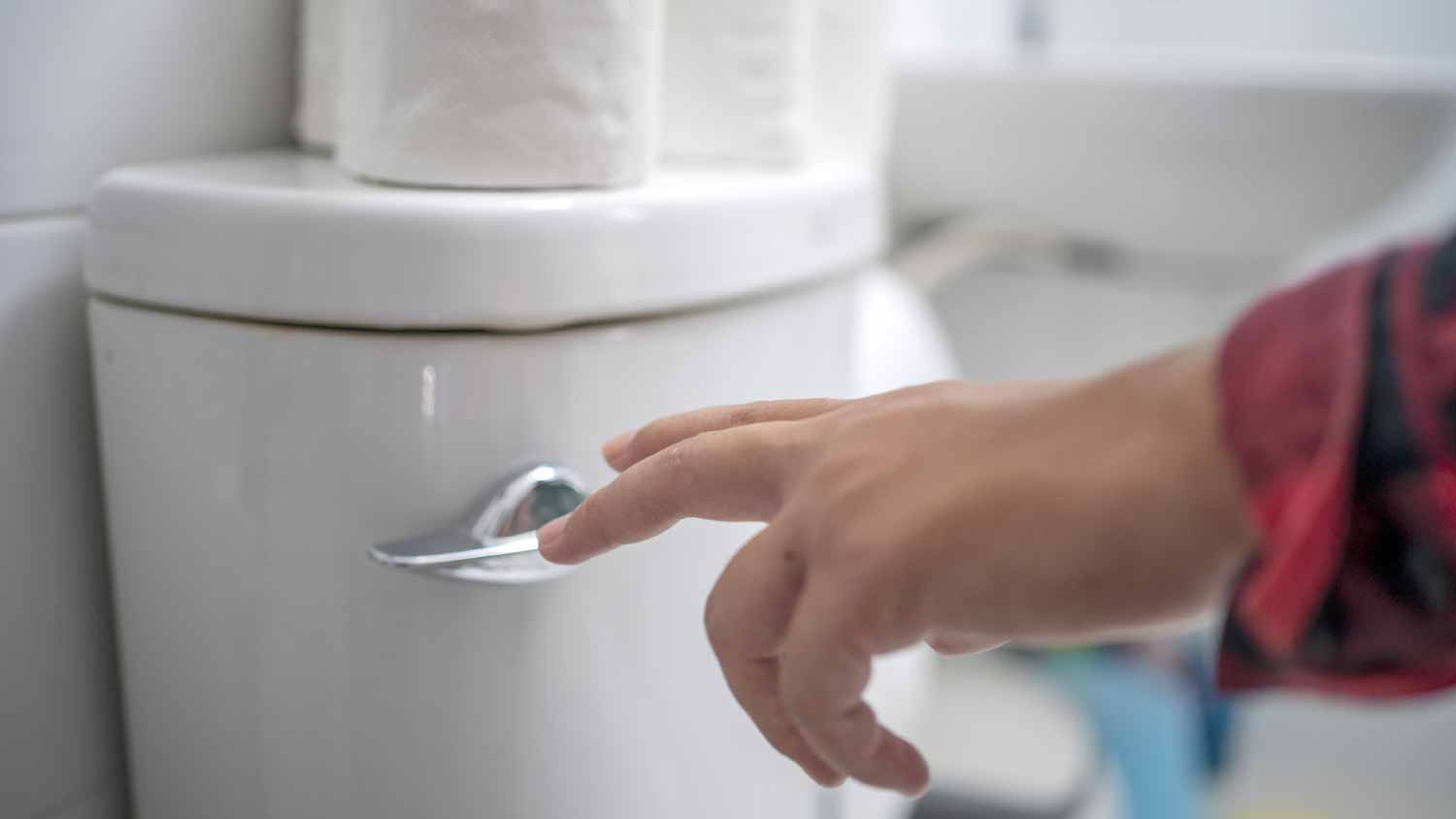
Need to know what sewer line replacement costs in Atlanta, GA? This guide will help you prepare to budget for sewer line replacement done by local contractors.
Flush responsibly and avoid plumbing catastrophes later on


Flushable wipes have a hard time clearing the curves in piping.
They contain synthetic materials that don’t break down in water like toilet paper.
If wipes are flushed across many households, the city’s sewer system can shut down.
Flushing these wipes can lead to plumbing emergencies like clogged sewer lines.
Since labels on “flushable” wipes market them as safe, you should be able to flush them down your toilet, right? Unfortunately, that’s not the case. Most flushable wipes contain synthetic materials that make it impossible for your septic or sewer system to break them down.
We’ve all been tempted to toss a baby wipe in the toilet, and how harmful could that be? Technically, you can flush a flushable wipe and it probably won’t immediately clog your toilet. However, chances are that once the flushable wipe makes it to the first curve in your pipes, it’ll get stuck there.
Worse yet, flushable wipes tend to build up over time until you have a bigger problem, like having to replace or clean your septic tank.
This isn’t the most cocktail-party-friendly topic, but toilet paper disintegrates in water, allowing it to flow through your plumbing system. Meanwhile, “flushable” wipes contain synthetic materials like plastic or polyester that don’t break down in water or pass through turns in the plumbing system.
Most of us know the dangers of flushing paper towels down the toilet—some of us have even experienced the panic that creeps up when you flush a paper towel and hold your breath to make sure it goes down. Due to the synthetic materials in flushable wipes, they hold together better than paper towels. Over time, because they don’t disintegrate like toilet paper, they will eventually clog your pipes and ultimately cause damage to your plumbing system.

When one person uses flushable wipes, they will likely cause plumbing problems, toilet overflows, and septic issues. But if more and more people in a neighborhood start using flushable wipes, it has a larger impact on city sewage equipment.
Sewage pumps have impellers inside them that pump water through the system. Flushable wipes clog the system, get caught on the impellers, and can cause the entire system to shut down. Think of it like taking a ball of string and wrapping it around the blades of a fan; your fan might not stop immediately, but the string will quickly get tangled and cause a big old mess.
Even worse, when flushable wipes come in contact with oils and fats in the sewage system, they can cause huge solid waste clogs known as “fatbergs.” Fatbergs are dangerous and expensive for cities to get rid of. It can take weeks for teams of workers to clean out a large fatberg.

As of now, there aren’t any laws requiring companies to prove that their products are flushable. In other words, packaging can say a product like baby wipes or wet wipes is flushable even though there isn’t any proof.
A study conducted at Ryerson University in 2019 tested 101 single-use products, including 23 labeled as flushable. None of the single-wipe products passed a sewer system test.
Even though we know these products create problems for household plumbing and city sewer systems, consumers experience confusion due to marketing promoting products as flushable.
Hiring a local plumber in a plumbing emergency will typically cost between $45 and $200 per hour, and the average cost to clean a sewer line is usually $175 to $400. But the problem of flushable wipes costs cities millions of dollars every year, and if your septic system breaks because of the wipes, a new septic system costs up to $20,000.
In simple terms, don’t flush anything but toilet paper down your toilet and avoid rinsing fats and oils down your sink. If you think you have a problem, call a local plumber right away to have it fixed before it builds up into a plumbing emergency.
Amy Pawlukiewicz contributed to this piece.
From average costs to expert advice, get all the answers you need to get your job done.

Need to know what sewer line replacement costs in Atlanta, GA? This guide will help you prepare to budget for sewer line replacement done by local contractors.

Concrete is one of the longest-lasting septic tank materials. Find out concrete septic tank prices for your wastewater management project.

The average cost to connect to a public sewer line can vary depending on the linear foot, piping material, local regulations, and more.

Septic failure is no picnic, but it needs to be addressed. We explore cost-saving and financing options for those who can’t afford a new septic system.

When considering a home in a rural area, you may not have access to a municipal sewer system. Learn all about living with well water and a septic tank before taking the plunge.

Wondering if an anaerobic septic system is the right choice for your home? Check out this guide to learn more about how this type of system works.